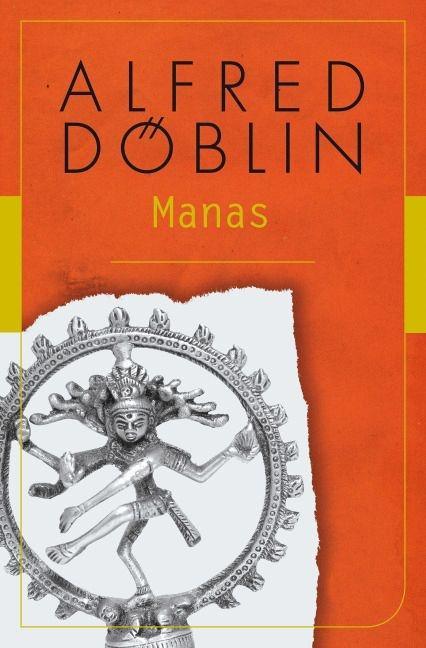Bücher versandkostenfrei*100 Tage RückgaberechtAbholung in der Wunschfiliale

Zustellung: Di, 18.02. - Mo, 24.02.
Versand in 3-4 Wochen
VersandkostenfreiBestellen & in Filiale abholen:
This remarkable book - an exciting and intriguing story, a blend of Hindu mythology and existentialism and told with great verve in a vigorous, direct language of many moods and voices - is one of the major fictions Alfred Doblin produced over the forty tumultuous years pre-World War 1 to post-World War 2.
Doblin himself is one of the least known of the twentieth century's great German writers, though his reputation has grown in Germany since his death in 1957: smart new editions appear every decade or so, and streams of books, journal articles and scholarly colloquia examine aspects of his art and his thinking.
The Anglophone reader comes to Doblin with little idea what to expect. Maybe a vague knowledge of that one title from his vast output: Berlin Alexanderplatz - The Story of Franz Biberkopf. The next novel after Manas, it has eclipsed all the rest ever since its publication in 1929. Doblin's reputation rests largely on the major fictions he called 'epics'. He wanted a new kind of fiction, a break from the bourgeois novel: no more playing with 'plot', 'suspense', 'individuals' with invented 'psychologies', no more cheap eroticism.
Doblin's fictions - all substantial works: Wallenstein, the Amazonas trilogy, November 1918 are each three to four times longer than Manas - are best conceived, he said, as symphonies. They proceed not so much by plot-action (though Manas does have a very forward-moving plot) as by themes and motifs that swell and fade, appear and reappear in tempi slow or fast, employing an orchestra of voices. And these symphonic fictions in their varied guises do indeed pursue, over forty years, matters of enduring human concern.
Doblin himself is one of the least known of the twentieth century's great German writers, though his reputation has grown in Germany since his death in 1957: smart new editions appear every decade or so, and streams of books, journal articles and scholarly colloquia examine aspects of his art and his thinking.
The Anglophone reader comes to Doblin with little idea what to expect. Maybe a vague knowledge of that one title from his vast output: Berlin Alexanderplatz - The Story of Franz Biberkopf. The next novel after Manas, it has eclipsed all the rest ever since its publication in 1929. Doblin's reputation rests largely on the major fictions he called 'epics'. He wanted a new kind of fiction, a break from the bourgeois novel: no more playing with 'plot', 'suspense', 'individuals' with invented 'psychologies', no more cheap eroticism.
Doblin's fictions - all substantial works: Wallenstein, the Amazonas trilogy, November 1918 are each three to four times longer than Manas - are best conceived, he said, as symphonies. They proceed not so much by plot-action (though Manas does have a very forward-moving plot) as by themes and motifs that swell and fade, appear and reappear in tempi slow or fast, employing an orchestra of voices. And these symphonic fictions in their varied guises do indeed pursue, over forty years, matters of enduring human concern.
Produktdetails
Erscheinungsdatum
22. April 2021
Sprache
englisch
Seitenanzahl
448
Autor/Autorin
Alfred Doeblin
Übersetzung
Chris Godwin
Verlag/Hersteller
Produktart
kartoniert
Gewicht
506 g
Größe (L/B/H)
130/197/40 mm
ISBN
9781912916214
Entdecken Sie mehr
Bewertungen
0 Bewertungen
Es wurden noch keine Bewertungen abgegeben. Schreiben Sie die erste Bewertung zu "Manas" und helfen Sie damit anderen bei der Kaufentscheidung.









